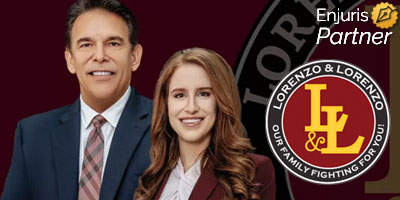
When and how to find a Florida bus injury lawyer who can help you receive compensation
There are several ways you could be involved in a bus accident, and being a passenger is only one of them. You could also be injured as a pedestrian, as another driver, or as the driver of the bus. The type of accident and type of bus would determine how you can receive compensation for your injuries.
Millions of people in Florida rely on bus transit daily. A robust network of bus transportation options plays a crucial role in connecting communities and providing affordable transportation. However, if a person suffers a bus accident—either as a passenger or pedestrian—it can be difficult to navigate the legal system to receive compensation. That’s because it works a little differently than it would for a traditional Florida car accident because many buses are owned and operated by municipal agencies and not private companies.
Common causes of Florida bus-related injuries
There are a few reasons why bus accidents happen, but it’s important to note that not every bus accident is a collision. Many bus-related accidents are from slip- or trip-and-fall incidents for passengers boarding or exiting the buses, or falls that happen from the motion of the bus while riding, even though the bus never crashed.
Here’s a look at some common types of bus accidents:
- Accidents from inadequate maintenance or mechanical failure. Neglecting routine inspections, faulty brakes, or tire issues can all contribute to losing control over the vehicle. Additionally, bus companies might cut costs by skimping on maintenance, further exacerbating the risks.
- Adverse weather conditions. Slippery roads, reduced visibility, and hydroplaning can make driving challenging, especially for larger vehicles like buses.
- Road infrastructure and design deficiencies. Poorly designed intersections, lack of proper signage, and road hazards can all increase the likelihood of collisions.
- Overcrowding and lack of seatbelts. These can make buses more vulnerable to accidents and lead to severe injuries for passengers in case of a collision.
Preventing bus accidents and injuries
We can never prevent all accidents, but there are a few ways we could aim to reduce the number of incidents. These include:
- Strict and comprehensive driver training and monitoring
- Regular vehicle maintenance
- Improved road infrastructure
- Promoting the use of seatbelts in buses
Florida laws related to bus accidents
Florida negligence laws
Florida follows a comparative negligence system, which means that multiple parties involved in an accident can be assigned a degree of fault based on their actions leading up to the incident. Compensation awarded to the injured party will be reduced by the percentage of fault attributed to them. In bus accidents, determining negligence can be complex, involving factors like driver conduct, bus maintenance records, and adherence to traffic laws.
Statute of limitations for a Florida bus accident
There is a limited timeframe within which an injured party can file a claim. Missing this deadline could result in losing the right to pursue compensation for damages. Seeking legal representation early ensures that the necessary steps are taken promptly and in compliance with the statute of limitations. Usually, an injured person has four years from the date of the accident in which to file a lawsuit.
Sovereign immunity
Many buses involved in accidents are owned and operated by government entities. Sovereign immunity laws in Florida might affect the ability to sue a government agency for damages. However, there are exceptions to these laws, and a skilled personal injury lawyer can navigate through them to ensure victims receive fair compensation.
Florida sovereign immunity laws bar an injured person from suing the state or any of its public entities without their consent. However, Florida Statute § 768.28 partially waives this immunity, allowing individuals to sue state agencies or subdivisions for personal injury claims up to $200,000 per person or $300,000 per incident. The law also requires the plaintiff to provide six months’ notice before filing a lawsuit.
This would be an issue if the bus accident involved a city- or municipal-owned vehicle. If it’s a private bus company (i.e. Greyhound or other charter), then the plaintiff would file a lawsuit like they would for any defendant that’s a private company or individual.
Complex insurance policies
Bus companies and government entities often carry substantial insurance policies to cover accidents. Dealing with insurance companies, especially those representing large entities, can be challenging for an individual with little legal experience. Personal injury lawyers understand how to negotiate with insurance companies and fight for the maximum compensation possible.
Remember, your injury (and lawsuit) is a big deal to you, but you’re one of hundreds (or thousands) of cases that appear before these legal teams all the time. Their objective is to make your claim go away—and sometimes that means offering a quick but lowball settlement. Don’t accept a settlement offer without consulting with a personal injury lawyer to determine what your claim is worth.
Why call a personal injury lawyer for a Florida bus accident?
Large companies and government agencies have teams of lawyers whose sole job is to resolve these types of claims.
But your lawyer will advocate for YOU and your interests. Personal injury lawyers specializing in bus accidents have the knowledge and experience necessary to handle complex cases effectively. They are well-versed in Florida's laws and regulations and can build a strong case to establish liability and seek rightful compensation for their clients.
An experienced personal injury lawyer will conduct a thorough investigation of the accident, gathering crucial evidence such as surveillance footage, eyewitness testimonies, bus maintenance records, and police reports. This evidence can be critical in proving liability and securing a fair settlement.
An injured victim might not fully comprehend the extent of damages they are entitled to claim. A personal injury lawyer will assess the overall impact of the accident, including medical expenses, lost wages, pain and suffering, and future medical costs. They will ensure their clients receive the compensation they deserve. Most personal injury cases are settled out of court through negotiations with insurance companies. A skilled personal injury lawyer will be a strong negotiator, fighting for the best possible settlement on behalf of their client. If a fair settlement cannot be reached, they are also prepared to take the case to trial.
See our guide Choosing a personal injury attorney.



